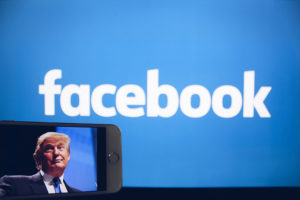
Facebook, under fire for right wing extremism
Yesterday, Facebook announced that, beginning next week, it will begin enforcing “a ban on praise, support and representation of white nationalism and separatism on Facebook and Instagram.” Facebook’s statement indicates that, while the company has always sought to target “white supremacy,”
[w]e didn’t originally apply the same rationale to expressions of white nationalism and separatism because we were thinking about broader concepts of nationalism and separatism — things like American pride and Basque separatism, which are an important part of people’s identity.
As can be seen from Facebook’s statement, when it comes to trying to identify and then ban offensive speech, the devil is in the details, and definitions matter. For example, what about a political article (like this post) that discusses the hate speech in question, or names some of the organizations or individuals who perpetuate it? Indeed, given Facebook’s size and number of users, its site scrubbing will likely be accomplished largely by bots, rather than trained people taking the time to exercise editorial judgment. Facebook’s statement makes reference to such “machine learning and artificial intelligence” to be employed in this effort. Therefore, the way such bots are programmed — presumably to look for certain words, individuals and organizations — will largely determine whether Facebook’s goals will be realized. Hopefully, we will see the results right away.
Facebook’s announcement comes after a period of pressure from both parties in Congress about its corporate practices, including not just the viewpoints it promotes (Republicans are sure to complain now about “left wing hate speech”), but also issues like user privacy. Likewise, U.S. Senator and Democratic presidential candidate Elizabeth Warren has proposed to “break up” big tech platform companies such as Facebook, Amazon and Google for antitrust reasons. Specifically, Warren wants to designate such platform companies (where ideas and/or goods are exchanged) with more than $25 billion in revenues as “platform utilities,” and then prohibit them from owning both the platform and “participants” on the platform at the same time.
Accordingly, it has widely been expected that Facebook would take steps in order to fend off possible government regulation. It should also be made clear that, since Facebook is a corporation and not the government, it may ban speech it deems objectionable over its platform, and the First Amendment does not come into play for users of its platforms in this context. However, since Facebook’s and Instagram’s business models involve spaces where ideas are exchanged, items are bought and sold, and advertising and marketing is everywhere, obviously, if Facebook bans too much speech, its attractiveness to users and advertisers, and thus its business value, could be degraded.
Still, Facebook is to be applauded for trying to address growing right wing extremism, even if Donald Trump won’t acknowledge the threat. Facebook executives surely know that the internet generally, and platforms like Facebook and Instagram specifically, are where violent extremists can easily communicate with each other and even potentially plot their next crimes. Accordingly, it seems likely that yesterday’s announcement by Facebook about banning right wing extremist hate speech won’t be its last step to address concerns about the company.
Photo by Book Catalog, used under Creative Commons license. https://is.gd/WhrTRI


